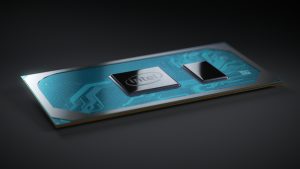The Computex show in Taipei has brought announcements from Intel, AMD and Arm, while MCU suppliers are also introducing significant innovations. EDA vendors are making news too, preannouncing some of the highlights of the upcoming DAC. And research efforts make autonomous driving a bit closer.
10th Gen Intel Core processors
Many of the innovations announced by Intel at Computex are targeted at laptops, with main course being the first 10th Gen Intel Core processors featuring Intel Deep Learning Boost. Built on the company’s 10nm process technology, new Sunny Cove core architecture and new Gen11 graphics engine, the 10th Gen Intel Core range will span from i3 to i7, with up to 4 cores and 8 threads, up to 4.1 max turbo frequency and up to 1.1 GHz graphics frequency. The new family targets thin-and-light laptops and ‘2 in 1s’, claiming a sharp performance increase over previous generation on every front: AI workloads, graphics (including 4K HDR), wireless connectivity (more than 1 Gbps with Wi-Fi 6). These SoCs integrate many on-chip functions, including a Gaussian Network Accelerator, Thunderbolt 3 and Wi-Fi 6. Intel also unveiled the 1.0 target specification of its Project Athena, aimed at improving the experience of laptop users. Requirements (called ‘key experience indicators’) include 16 or more hours of battery life in local video playback mode, 9 or more hours of battery life under real-world performance conditions, system wake from sleep in less than 1 second. Announcements include the new Intel Performance Maximizer, an automated overclocking tool for unlocked 9th Gen Intel Core desktop processors “that brings overclocking to the masses”, as stated in a press release.








